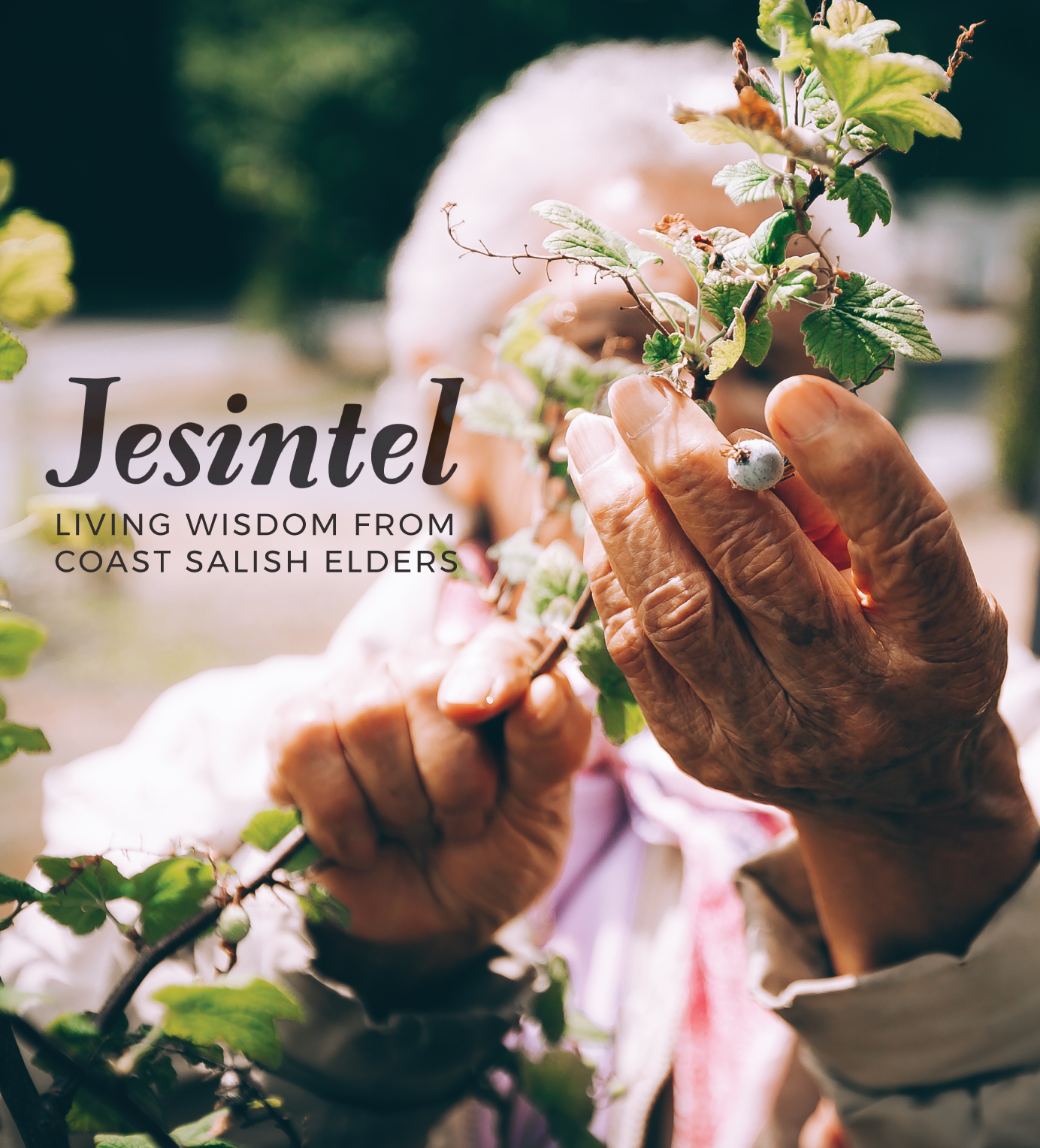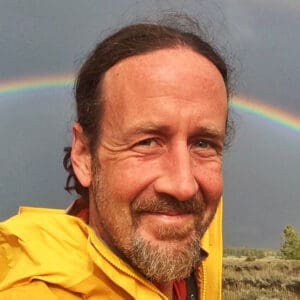A new book has been published that has been in the works for, well, thousands of years.
“Jesintel: Living Wisdom from Coast Salish Elders” from Children of the Setting Sun Productions — a Native-owned production company based in Bellingham — collects the lived experiences, firsthand knowledge, tribal traditions and ecological insights of Indigenous elders from all around the Salish Sea. It is an anthology of a localized worldview that has developed over eons of intimate contact with the natural and cultural world of this place we call home.
“Jesintel” is a profound gift from regional tribal communities who have lived with and stewarded the lands and waters around the Salish Sea since time immemorial, offering a rare and intimate glimpse into the shared values of a people with the deepest roots here in the Fourth Corner.
Published by the University of Washington Press, it collects interviews, stories and intimate photographs of 19 Coast Salish elders. It is edited by Darrell Hillaire and Natasha Frey, and contains contributions by Lynda Mapes of The Seattle Times, Nicole Brown of Western Washington University, and an afterword by Danita Washington of the Lummi Nation.
In its pages, Tom Sampson of the Tsartlip First Nation reflects on the importance of Native languages and shares his people’s creation story. Arvid Charlie of the Cowichan Nation tells the history of tribal canoe journeys. Ernestine Gensaw of the Lummi Nation shares what life was like growing up on Portage Island, while fellow Lummi Jewell James describes his role in the House of Tears Carvers and how “dreams and visions guide (our) lives and spiritual understandings.”
Salmon swim through these pages as the stories wind back and forth across the international border, from Vancouver Island to Cherry Point to Burnaby Mountain to the Mukilteo Treaty Beach — all places accessible by canoe. Other groups represented include the Tulalip Tribal Nation, Tsartlip First Nation, Nisqually, Swinomish and Muckleshoot tribes, and others.

I have been reading “Jesintel” alongside another new and insightful book, “The Power of Trees: How Ancient Forests Can Save Us if We Let Them” by Peter Wohlleben (both are featured in Village Books’ and North Cascades Institute’s Nature of Writing speaker series).
Wohlleben is the author of the bestselling “The Hidden Life of Trees,” which revealed paradigm-shifting science about the interconnected networks of forests, postulating that “trees are social, sentient beings, who talk to each other, feed and nurse their young, sense pain and have personalities,” as The New York Times described it. “The Hidden Life of Trees” — translated from German by Anacortes-based writer Jane Billinghurst — went on to sell more than 3 million copies worldwide.
In his sequel, Wohlleben turns his attention to old-growth forests to show us how “the future of forests and the future of humanity are inextricably entwined.” Surveying recent scientific discoveries in his plain-spoken voice, he highlights the cooperative and adaptive pathways of forest communities. For example, mother trees encode “their latest survival strategies” for a warming world to their offspring through the seeds they produce, and coastal forests act as “biotic pumps” to send moist aerial rivers thousands of miles into the drier interiors of continents.
Wohlleben focuses on how important maintaining and regenerating ancient forests are to adapting to climate change, and he offers a damning critique of contemporary forestry management and monocultural tree plantations.
That old-growth forests are “complex superorganisms that are healthier when the networks that connect all the elements are intact”— alongside the fact that our survival depends on them — sounds awfully like ideas Indigenous cultures have been trying to tell us for centuries.
Wohlleben’s books are published with support from the David Suzuki Institute, which is uncanny as it was the voice of Suzuki himself that came into my mind as I was reading these books, feeling the contrasts between their scientific and Indigenous worldviews.
In 2005, I was fortunate to interview the elder statesman of Canadian environmentalism at his home on Kitsilano Beach in Vancouver, B.C. We were discussing his book “The Sacred Balance,” and he described to me how he finds balance between these two different ways of perceiving the world.
“What I do is find the best science we’ve got describing the state of the world and search for congruencies with Native perspectives,” Suzuki explained. “What science does for me is to provide corroboration for what Aboriginal people have been telling us all along.”
“Jesintel” — which means “to learn and grow together” — brings the cultural teachings of elders to a new generation, offering modern society a roadmap to a respectful and resilient worldview. Wohlleben’s “The Power of Trees” shares how science is revealing the fate of humans and forests as intertwined in ways beyond our limited comprehension.
I hear Suzuki’s voice in my head: “The new way of looking at life is to rediscover very ancient understandings.”
Christian Martin is the communications and marketing manager for the North Cascades Institute.
Attend
What: Children of the Setting Sun share “Jesintel: Living Wisdom from Coast Salish Elders”
When: 7 p.m. Friday, April 28
Where: Village Books, 1200 11th St.
Cost: $5
Info: villagebooks.com
What: Peter Wohlleben reads from “The Power of Trees: How Ancient Forests Can Save Us if We Let Them”
When: 7 p.m. Saturday, May 6
Where: Bellingham High School, 2020 Cornwall Ave.
Cost: $32 (includes copy of the book)
Info: ncascades.org





